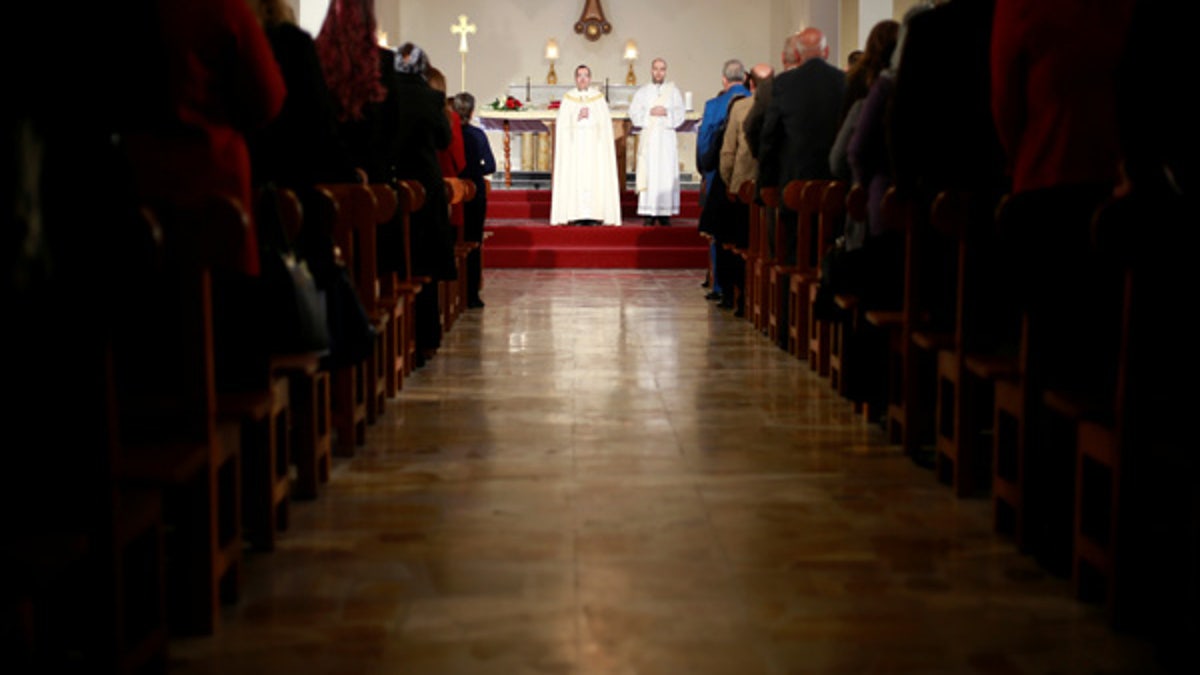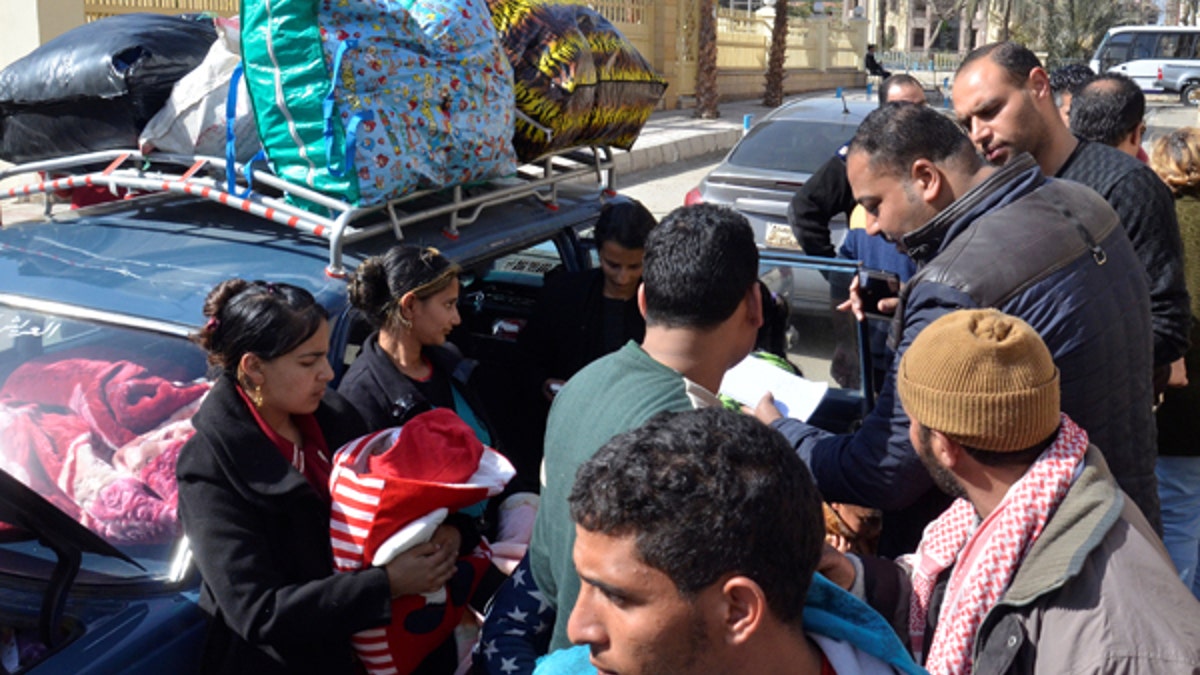
Iraqi Christians attend a mass on Christmas at St. Joseph Chaldean church in Baghdad, Iraq, Dec. 25, 2016. (REUTERS/Thaier Al-Sudani)
One of the effects of increasing Christian persecution in the Middle East is the creation of a diaspora.
Many believers are left with no choice but to make the perilous journey to Europe in the hopes of landing a spot in one of many over-crowded migrant camps. Others choose to wander the region as nomads, with no reassurance that they will be able to return to their homelands any time soon.
The Nineveh Plain region, also known as the Plain of Mosul, has been the ancestral homeland of Assyrian-Chaldean-Syriac Christians, Yazidis and other minorities -- all of whom were under attack from ISIS once the terror group started to control the region in 2014.
The Christian population in Iraq has plummeted from 1.5 million in 2003 to current estimates of 275,000 and could be permanently gone within five years, if no action is taken, according to a November 2015 report from Aid to the Church in Need, an international Catholic charity.
The dwindling numbers are due to genocide, religious refugees fleeing to other countries, internal displacement and others disavowing their faith.
It has been estimated that a dozen Christian families fled Iraq each day during the ISIS occupation of the northern half of the country. Christians who have managed to escape ISIS have fled to places like Europe and Lebanon. Others simply wandered the region avoiding U.N.-operated refugee camps for fear that Muslim refugees in the camps would target them.
Many of those who have been displaced want to return to their homeland and see the Nineveh Plain as the cradle of their faith.
“Unless the global community gets involved, we will witness the loss of Christian witnesses in a land that is biblically significant,” Elijah Brown, executive vice president for religious advocacy organization 21st Century Wilberforce, told Fox News.
In Syria, where groups like Aid to the Church in Need has sent $9 million in aid to help Christians driven from small towns north of Damascus, an estimated 15,000 Eastern Orthodox Christians left their villages in 2015 to seek refuge in cities like Homs, Zaidal and Fairouzeh.
In northern Sinai, Coptic Christians have been fleeing their homeland in droves because of the militant threats in recent years. The Coptic community, which numbered up to 5,000 in 2010, has now dwindled to fewer than 1,000, according to the Associated Press. There are no official statistics on the number of Christians in cities or across the region.

Christian families who left from Al-Arish in the North Sinai Governorate after the escalation of a campaign targeting Christians by Islamic State militants, arrive at the Evangelical Church in Ismailia, Egypt February 24, 2017. (REUTERS/Ahmed Aboulenein)
Last month was particularly horrific for the Sinai’s Copts as ISIS began a siege of the northern Mediterranean city of Al Arish. The recent demand from ISIS for the Copts on the peninsula to be killed has resulted in more than 100 families fleeing the region.
“My whole life is in Al Arish,” Monica, a college student whose family is from the city, said to Fox News last month. “My friends. My church. Everything. All of my life is there.”
Monica, who asked at the time that that her surname not be published, was forced to flee Al Arish along with her family after ISIS fighters threatened to kill her brother — simply because he was Christian.
Many fled the city after the violent incidents increased in 2017, seeking refuge in the city of Ismailia, about six hours from Al Arish on the banks if the Suez canal or in the immediate region surrounding the capital city of Cairo.
